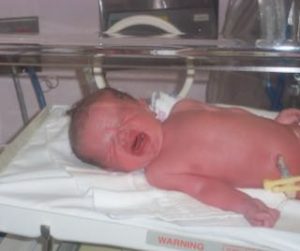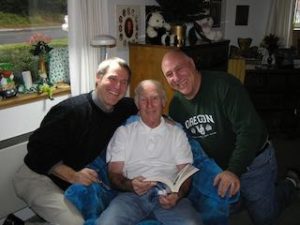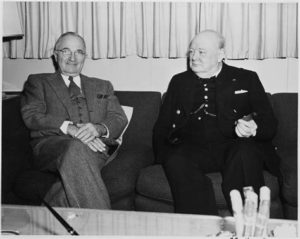”As I live, saith the Lord God, I have no pleasure in the death of the wicked; but that the wicked turn from his way and live: turn ye, turn ye from your evil ways.” Ezekiel 33:11

I have been pretty fortunate when it comes to substitute teaching because overall I have been treated great by the kids no matter what the school or subject. Some subs, however, are not so fortunate. Kids see a sub and mistreat them. It as though the students think subs have no feelings, so it is okay to abuse them. When the kids see the teacher as robotic and without emotions, it becomes all right to treat them anyway they please. That is often the process people use when they want to hurt others. They dehumanize them first, take away personal identity, remove the traits that would feel pain, and then go on to treat them anyway they want.
Unfortunately, that is what many do to God. They see Him as a disconnected being overseeing the world with an uncaring eye and a cold heart. Because they see Him that way it allows them to treat Him any way they like. After all, if He has no feelings, He cannot be hurt so we can curse Him, mock Him, and reject Him at our own pleasure. But that is not who God is. On the contrary, God feels pain when we reject Him. Not for Himself, but for us. Peter tells us that,  “The Lord is not slow to fulfill his promise as some count slowness, but is patient toward (us), not wishing that any should perish, but that all should reach repentance.” 2 Peter 3:9
“The Lord is not slow to fulfill his promise as some count slowness, but is patient toward (us), not wishing that any should perish, but that all should reach repentance.” 2 Peter 3:9
When people misunderstand the sovereignty of God and assume that God is pleased with all that He allows to happen in the world they ignore God’s nature as revealed in His Word. We mistakenly say that if God was really hurt by the bad things in the world He would stop all evil, pain, and suffering since He is all-powerful. If He does not stop it, He must not care, or at the least, not be hurt by what He sees. Nothing could be further from the truth. God cares so much that He gave His only Son to suffer and die on behalf of those who cursed, mocked, and rejected Him. Who else would do such a thing?
Additionally, we sometimes justify a particular sin or sinful way of life by telling ourselves that if it really hurt God or if He was really upset, He would change us. After all, if we don’t like something someone else is doing and we have the power to change it, we normally try to change it. But God has tried to change things. Over and over in his Word he says in many different ways, “turn ye, turn ye from your evil ways.” His Word gives us all the ingredients for a joyful (Brynn) contented life. Our rejection of those ingredients does not say as much about God as it says about us.
We can try to rationalize our bad behavior, just like the kids do with the poor substitute teacher, by changing God into an unfeeling being, but the truth is He has more feeling for us than we can possibly have for ourselves.  When we hurt, He hurts more. Our tears stream down his cheeks and our breaks from Him break His heart. He takes no pleasure in our pain and, in fact, He feels our pain. An atheist said, “If there is a God, may he prove himself by striking me dead right now.” Nothing happened. “You see, there is not God.” Another responded, “You’ve only proved that He is a gracious God.” God loves us and often saves us from ourselves because of His great mercy. When we rebel against Him because we think He has no feelings, He shows His feelings by showing us grace.
When we hurt, He hurts more. Our tears stream down his cheeks and our breaks from Him break His heart. He takes no pleasure in our pain and, in fact, He feels our pain. An atheist said, “If there is a God, may he prove himself by striking me dead right now.” Nothing happened. “You see, there is not God.” Another responded, “You’ve only proved that He is a gracious God.” God loves us and often saves us from ourselves because of His great mercy. When we rebel against Him because we think He has no feelings, He shows His feelings by showing us grace.
God delights when we turn to Him and

sorrows when we turn away. With His power He could grab us and turn us around, but He would much rather we turn responding to His love than to His heavy hand. When I was growing up, I did what my father ask of me, not because I was afraid of him (which I should have been, because he was one tough guy), but because I was afraid to disappoint him. He loved me so much, that I had a hard time seeing him hurt. If we could see how much our Father in heaven loves us, and how much our rebellion hurts Him, we would think twice about our tendency to rebel.
If we read the Word and open our hearts to it, we will see the nature of God. We will also see our own nature. Juxtaposing the two, we will see that it is us who should change, not God. While visiting the U.S. after World War II, Winston Churchill was aboard a train bound for Missouri with President Harry Truman.  They were in a special car which had the presidential seal hung up on a wall. Truman noticed Churchill studying the seal and he pointed out that he had changed it so that the eagle on the seal was turned toward the olive branch instead of the arrows. “Why not put the eagle’s head on a swivel,” suggested Churchill. “That way
They were in a special car which had the presidential seal hung up on a wall. Truman noticed Churchill studying the seal and he pointed out that he had changed it so that the eagle on the seal was turned toward the olive branch instead of the arrows. “Why not put the eagle’s head on a swivel,” suggested Churchill. “That way  you could turn it to the right or the left, depending on what the occasion warranted.” Unfortunately, that is what we tend to do in our own lives. We put our behavior on a swivel and sometimes point it toward God and sometimes point it away depending on whether we want to war with Him or not.
you could turn it to the right or the left, depending on what the occasion warranted.” Unfortunately, that is what we tend to do in our own lives. We put our behavior on a swivel and sometimes point it toward God and sometimes point it away depending on whether we want to war with Him or not.
We should not wait until we are forced to turn to God by our own self-destruction. Some people seem to see the light, but others won’t turn to God until they feel the heat. God has open arms, and to understand that fact we merely need to have open hearts.
Leave a Reply